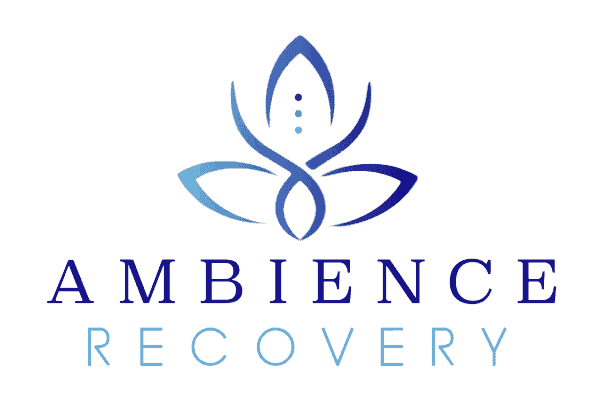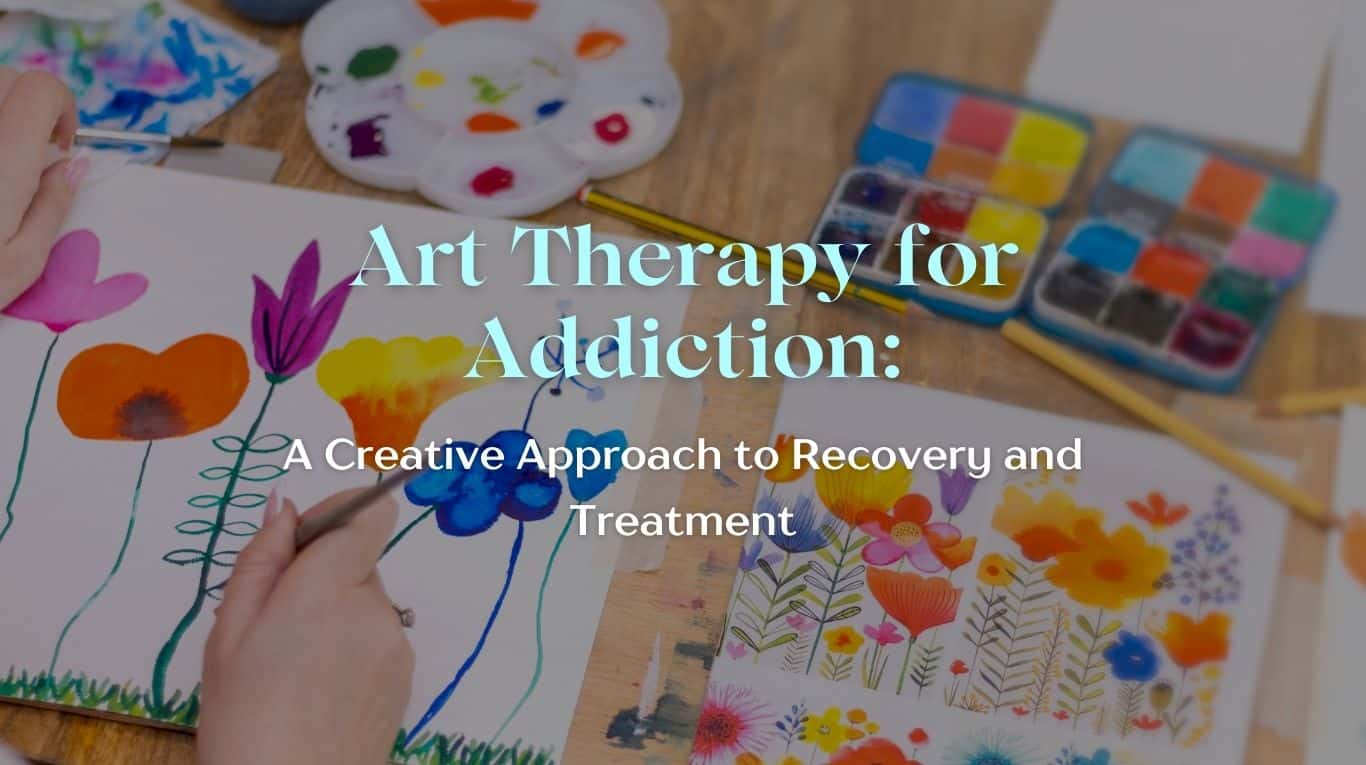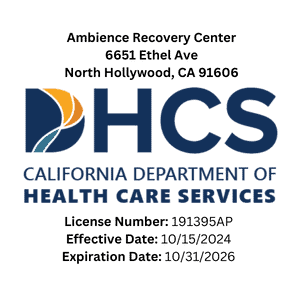In the world of addiction treatment, art therapy shines as a unique healing tool. It helps when words are not enough. Many people fighting addiction also struggle with mental health issues. This makes it hard for them to talk about their feelings during art therapy sessions. Art therapy comes into play here, offering a powerful, wordless way to heal. It gives a safe space to express feelings openly and creatively12.
Key Takeaways
- Art therapy is a potent, holistic approach to addiction recovery, accessible in various therapeutic settings.
- A significant intersection exists between addiction and struggles with verbal communication due to underlying trauma or brain cell damage from substance abuse.
- Techniques in art therapy, such as drawing and journaling, are more than creative outlets—they are bridges to emotional management and motivation for change.
- The method serves as a complementary break from traditional talk therapy, leveraging the subconscious for creative self-expression.
- Art therapy has proven beneficial across a spectrum of conditions, from anxiety to PTSD, reinforcing its role in strengthening mental health and self-identity in addiction treatment.
- Integrating art therapy into inpatient treatment programs provides a multi-faceted approach to recovery, enhancing feelings of safety and support during the healing process.
The Growing Importance of Art Therapy in Addiction Treatment
Art therapy is becoming more popular in addiction treatment centers. This therapy uses creative methods to help people recover. It gives patients a way to share their feelings without words.
Understanding CAM in SUD Programs
Now, 36.8% of U.S. substance abuse programs include art therapy3. It’s especially common in group therapy programs for women and young people.3. Art therapy is gaining recognition for helping with the emotional issues tied to addiction.
Evidence-Based Practices vs. CAM in Recovery
Evidence-based practices are key in addiction treatment, but CAM brings more to the table. Including art therapy is becoming popular in programs that use motivational therapy3. Music therapy also helps a lot, especially with teens and women3.
The Impact of the Affordable Care Act on CAM
The Affordable Care Act has helped more people get CAM treatments like art therapy3. Insurances now cover these treatments, helping more patients access them.
Art therapy does more than let people express feelings. It also reduces stress, increases self-awareness, and helps build a community feeling in treatment centers4. It’s crucial for healing diverse groups of people4.
Art Therapy Techniques for Overcoming Addiction
Art therapy uses creativity to fight addiction, showing great success. It includes many techniques that aid healing. These methods let people in recovery express themselves and tackle their challenges creatively.
Activities like painting and drawing mandalas help with relaxation and stress during the recovery process. They offer a calm way to deal with recovery cravings5. Making collages helps people learn more about themselves and their addiction5.
Drawing with guided imagery, along with traditional art, lowers stress. It helps build coping skills needed for recovery5. Gratitude art journaling builds a positive outlook and strength, pushing individuals forward5.
Adding these exercises to recovery programs boosts community feeling and emotional health. Painting murals together, for example, builds bonds among those recovering. It creates support and shared experiences essential for success5.
Creative treatment like sculpture and mask making explores identity and feelings in the context of recovery from drug and alcohol issues. It makes the recovery journey clearer5. Drawing body outlines and making transformational collages let people see changes in their treatment5.
Research shows art therapy cuts down substance use and aids mental health. A study found 68% used substances less after art therapy6. This confirms art’s therapeutic power.
Art therapy also helps with trauma, often missed in recovery talks6. It lowers stress, boosts self-worth, and helps people share feelings without words6.
Art therapy’s whole-person approach doesn’t just address addiction’s physical side. It involves mind and spirit too, making recovery fuller and deeply beneficial with art’s profound effects.
Exploring Art Therapy for Substance Abuse
Art therapy plays a key role in fighting substance abuse, as recognized by healthcare experts worldwide. It gives individuals in addiction rehab a special way to express their feelings and challenges related to substance abuse.
The Role of Non-Verbal Expression in Healing
Art therapy opens up non-verbal ways to communicate, helping those who find it hard to talk about their feelings. Through activities like painting, people can lower their stress, making their recovery smoother7. This approach lets them connect with their emotions without the complications of words. Research has found that art therapy is great for personal growth and managing stress8.
Art Therapy: A Bridge Between Emotion and Communication
Art therapy serves as a bridge, translating complex emotions into art that can be understood and shared. It boosts self-awareness and offers a safe space for expressing feelings, reducing the likelihood of harmful behavior. Experts believe that those using art therapy in recovery manage their emotions better, significantly reducing their chances of relapse97.
Creative Processes as Therapeutic Tools
Creative activities in art therapy support sobriety and general health in addiction recovery. Studies show that these artistic activities help people recognize their feelings more clearly, aiding long-term recovery89. These activities encourage deep self-reflection and help in managing anxiety and depression.
Exploring art therapy for substance abuse Art therapy involves many techniques that help those in recovery from substance use disorder. By adding art therapy to addiction rehab, it enriches traditional treatments and offers a new way for healing. Ultimately, this enhances the path to sobriety and overall health.
Incorporating Art Therapy in Addiction Counseling: A Multi-faceted Approach
In the world of addiction recovery, adding creativity is a big step forward. Art therapy, recognized by the American Art Therapy Association, plays a key role in treating the whole person, especially in the context of drug addiction. Many people turn to substances to cope with stress and trauma10. Art therapy offers them a way to express feelings when words are hard to find11.
The First Step Series is a unique art therapy approach. It helps people see and understand their substance use and denial10. Through art, participants explore their feelings without judgment. This process is essential for dealing with emotions like anger and sadness during recovery11.
Group art sessions boost communication skills and self-esteem10. They also help with emotional growth, cutting stress and helping avoid a relapse11.
Combining art therapy with other treatments, like medication or music therapy, creates a strong recovery plan10. This mix-and-match approach meets individual recovery needs. It’s especially effective for teenagers, showing the versatility and benefits of art therapy for all ages11. In the end, art therapy isn’t just about recovery. It also improves problem-solving skills and inspires new hobbies through creating art.1011.
FAQ:
What is art therapy for addiction?
Art therapy for addiction is a specialized form of therapy that integrates the creative process of creating art with traditional addiction treatment. It is designed to help individuals struggling with addiction express emotions, explore their subconscious thoughts, and develop healthier coping mechanisms through the use of various artistic mediums such as painting, drawing, and sculpting.
How does art therapy in addiction treatment work?
Art therapy in addiction treatment works by allowing patients to express themselves in a non-verbal way. Through the process of creating art, individuals can access and explore emotions and experiences that may be difficult to put into words. This can be particularly helpful in substance abuse treatment where trauma or deep-seated issues often play a role. An art therapist guides the sessions, helping individuals interpret their artwork and connect it to their recovery journey.
What are the benefits of art therapy for addiction recovery?
The benefits of art therapy for addiction recovery are numerous. It can enhance self-awareness, reduce stress, and provide a healthy outlet for emotions. Additionally, it helps improve self-esteem, promotes relaxation, and can reduce the risk of relapse by providing alternative coping strategies. Art therapy can also foster a sense of accomplishment and personal growth, which are crucial elements in the recovery process.
Who can benefit from art therapy for substance abuse?
Anyone struggling with addiction, whether it be drug addiction or drug and alcohol addiction, can benefit from art therapy for substance abuse. It is particularly beneficial for individuals who have difficulty expressing themselves verbally. It is also useful for those who have experienced trauma, as the creative process can provide a safe space to explore difficult emotions and memories.
Source Links
- How Can Art Help in Addiction Recovery? | Gateway Rehab – https://www.gatewayfoundation.org/addiction-blog/recovery-art/
- Art Therapy – https://www.addictioncenter.com/treatment/art-therapy/
- The Use of Art and Music Therapy in Substance Abuse Treatment Programs – https://www.ncbi.nlm.nih.gov/pmc/articles/PMC4268880/
- Art Therapy In Addiction | New Choices Treatment Center – https://newchoicestc.com/blog/art-therapy-in-addiction/
- 10 Best Art Therapy Exercises for Addiction Recovery – https://scholistico.com/art-therapy-for-addiction-recovery/
- Art Therapy in Addiction Treatment: Types and Recovery – https://grovetreatment.com/addiction/treatment/therapy/experiential/art/
- Role Of Art Therapy In Addiction And Mental Health – https://whitelightbh.com/resources/therapy/art/
- Laconia, NH’s Art Therapy in Addiction Treatment – https://sobrietycentersofnh.com/laconia-nh-art-therapy-in-addiction-treatment/
- Art Therapy for Drug & Alcohol Addiction Recovery | Zinnia Health – https://zinniahealth.com/substance-use/therapies/art-therapy
- The Benefits of Art Therapy in Overcoming Addiction – https://masscenterforaddiction.com/the-benefits-of-art-therapy-in-overcoming-addiction/
- Healing Through Art: Effective Art Therapy for Addiction Recovery – https://www.elevatedmagazines.com/single-post/healing-through-art-effective-art-therapy-for-addiction-recovery
Katie is a Licensed Clinical Social Worker who has worked as a primary therapist, supervisor, and now clinical director for SUD/MH treatment centers for the past 12 years. Katie is trained in Brainspotting, EMDR, Internal Family Systems and Dialectical Behavior Therapy and is passionate about treating substance use disorders, trauma and grief.






